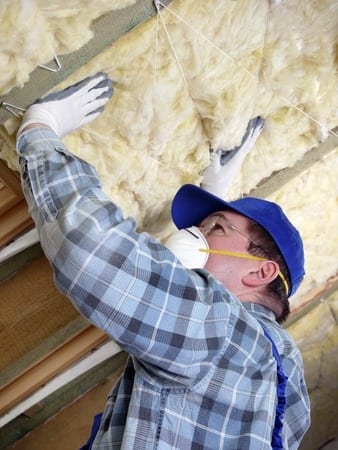As the cost of living keeps on rising perpetually, homeowners, landowners, and proprietors surely would want to save as much money as possible by cutting corners. One time-honored cost-cutting strategy is to opt for some home improvement techniques. For instance, replacing the decade-old refrigerator with a new energy star rated one, installing a new window in place of the old one through which air from outside easily leaks inside, and changing HVAC equipment are some time-tested strategies. Another practical approach is to go in for quality roof insulation that in the long run helps in bringing down overall energy costs by checking the inflow of radiant/atmospheric heat and cold thereby putting less strain on your HVAC system.
What is roof insulation?
Roof insulation is simply a process or mechanism of fortifying the top layer or covering of your house with roofing material so that hot or cold air from outside is unable to seep through. If the appropriate material is properly installed, the same can check the inflow of radiant heat during the summers by up to 97% as well as thwart cold air from entering through the roof. Also, insulating the roof effectively means the heating, ventilation and air-conditioning systems in offices and homes function smoothly instead of overworking to keep indoor spaces more comfortable for working or residing. Opting for professional insulation of the roof also implies that convective heat inside the rooms or inner spaces is preserved during winter as well as minimizes possibilities of moisture or thermal condensation that could lead to issues of mildew, dripping or mold formation.
Types of roof insulation
There are basically two distinct kinds of roof insulation-reflective insulation and bulk insulation. The sort of insulation material you use automatically decides the type you opt for. For instance, if you go for layering the roof in your home or office with aluminum foils then you’re choosing reflective insulation and if the top layer is carpeted with fiber glass, mineral wool, polyurethane foam or rigid foam then you select bulk insulation.
Which roof insulation system is perfect?
Reflective roof insulation is more effective particularly for homes or offices situated in areas where summer is the main season. On the other hand, bulk material insulation seems to work better for real estates in colder climes. However, since modern structures or edifices have roofs that doesn’t have sufficient insulation space, blending use of both reflective and bulk insulation materials would be a pragmatic approach.




